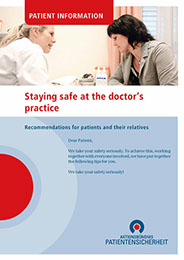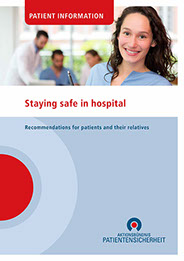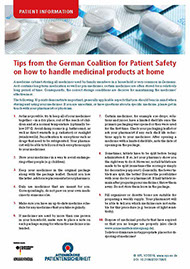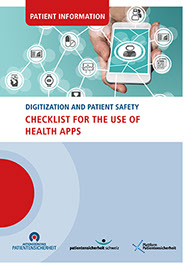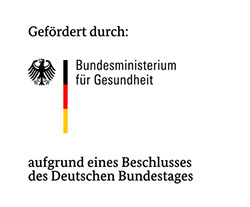Focus on "Child Health"
Children are particularly vulnerable. This especially applies to their medical care. However, responsible stakeholders and decision-makers in the healthcare system still too often consider their safety as patients from an adult perspective. It is therefore all the more encouraging that the WHO motto for this year's World Patient Safety Day is "Safe care for every newborn and every child".
Accordingly, the German Coalitionfor Patient Safety (APS) will focus this year's event, marking World Patient Safety Day (WTPS), traditionally held on September 17, on the safe care of children – under the slogan: "Patient safety from childhood onwards – an investment for life“.
Children are not "little adults"
Children do not decide for themselves which medical facility they visit, or which treatment method is used in the event of an illness. They must rely on the care of their parents and the medical staff providing treatment and care. At the same time, children's physical and psychological characteristics prohibit them from being treated in a facility inexperienced in dealing with children. Children experience a practice or clinic differently than adult patients and are not always prepared for potentially unpleasant treatment situations.
Talking about projects and initiatives – protecting children
On this year's World Patient Safety Day, we at APS would like to address and involve all stakeholders. We would like to give parents, nurses, pediatricians and obstetricians a voice. They should share their experiences and explain what they believe is going very well, moderately well, and less well in which areas. However, at APS, we are not only concerned with repeatedly pointing out deficits in the healthcare system, but also with highlighting the predominantly positive aspects and successes, thus specifically working towards eliminating systemic weaknesses and patient risks – not only for children.
We are pleased to provide translations of these recommendations for action on this website.
> Translations in English and Spanish – Practical Guidance
> Homepage of the Aktionbündnis Patientensicherheit e.V. (APS) [german]
> Homepage "Welttag der Patientensicherheit" (World Patient Safety Day) [german]
WHO campaign
We support the WHO international initiative for World Patient Safety Day
In May 2019, at the 72nd World Health Assembly in Geneva, 194 countries committed to recognizing patient safety as a health priority and taking steps to improve and ensure patient safety around the world. The World Health Assembly declared September 17th to be WORLD PATIENT SAFETY DAY and commissioned WHO to organize and establish September 17th as the annual World Patient Safety Day.
In 2019, the World Patient Safety Day took place for the first time worldwide – since then, the WHO has been focusing on patient safety on September 17th every year. The aim of the international initiative is to mobilize patients, health workers, policy makers, scientists, researchers, professional networks and the health industry to advocate patient safety and to increase public engagement on patient safety issues.
The WHO invites all healthcare organizations – institutions, academic organizations, companies, patient organizations – to take an active part in World Patient Safety Day and also to share their ideas on the subject of patient safety and to spread their commitment to patient safety to the general public.
Information on the international World Patient Safety Day and the WHO international campaign can be found on the World Health Organization website.
Join
You are welcome to share your engagement
Every organization contributing to more patient safety is welcome. Please register and we will display your logo on the cooperating organizations page on this site. Your participation is very appreciated as a motivation for more and more others. We welcome you to join us!
> Registration
> Cooperating organizations

